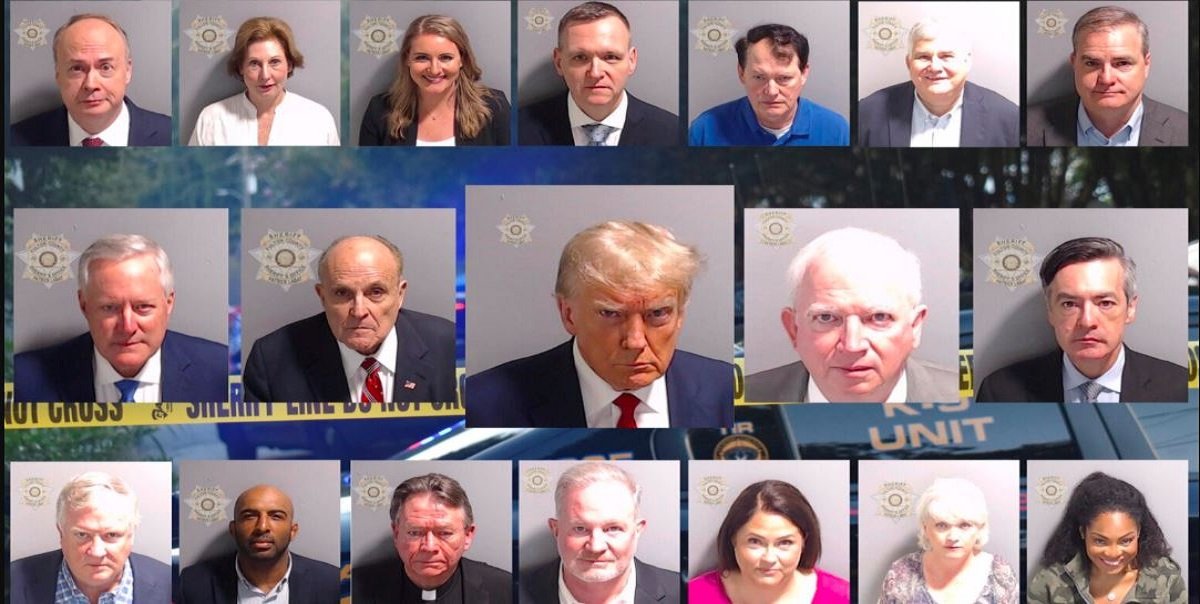The aftermath of the 2020 Presidential Election has brought to light numerous contentious issues regarding electoral integrity and legality. One of the most significant developments in this saga has been the Arizona prosecution of fake electors. This situation has ignited discussions on the nature of election fraud, the role of state officials, and the future of electoral democracy in the United States. In this article, we will explore the context of the Arizona prosecution, the individuals involved, the legal implications, and the broader impact on the electoral system.
Background: The 2020 Presidential Election and Its Aftermath
The 2020 Presidential Election was marked by unprecedented challenges and controversies. Following the election, former President Donald Trump and his supporters claimed widespread voter fraud, allegations that were repeatedly dismissed by courts and election officials across the nation. However, in several states, including Arizona, a group of individuals attempted to subvert the electoral process by submitting false electoral votes to Congress.
In Arizona, a group of individuals gathered to declare themselves “electors” for Trump despite Joe Biden winning the state. This led to an investigation into their actions, resulting in the Arizona prosecution of fake electors. The case has not only legal implications but also raises questions about accountability and the integrity of the electoral process.
The Fake Electors Scheme
Who Were the Fake Electors?
The individuals involved in the Arizona prosecution of fake electors were primarily members of the Republican Party who sought to challenge the legitimacy of Biden’s victory. They convened in December 2020 to cast what they claimed were electoral votes for Trump, despite the official slate of electors having already been certified for Biden.
The Submission of Fake Electoral Votes
On December 14, 2020, these self-proclaimed electors submitted a set of false electoral votes to Congress, which was intended to confuse and disrupt the certification process. This act was seen as an attempt to undermine the democratic process and challenge the legitimate outcome of the election.
Legal Proceedings in Arizona
Investigation Initiation
The Arizona Attorney General’s Office initiated an investigation into the actions of these fake electors, scrutinizing whether their actions constituted criminal behavior. The investigation involved collecting evidence, interviewing witnesses, and reviewing the procedures followed during the electoral vote certification.
Charges Filed
In January 2022, the Attorney General announced that criminal charges would be filed against several individuals involved in the Arizona prosecution of fake electors. Charges included conspiracy, forgery, and offering false instruments for filing. The prosecution argued that these actions not only violated Arizona election laws but also undermined the democratic process.
Key Figures in the Prosecution
Some of the prominent individuals charged in this case include:
- Kelli Ward: The chairwoman of the Arizona Republican Party, who played a significant role in organizing the fake electors meeting.
- Other Local Officials: Several other local party officials were implicated, highlighting the widespread involvement of Republican operatives in this scheme.
The Impact of the Arizona Prosecution
Legal and Political Repercussions
The Arizona prosecution of fake electors has significant legal implications, not only for those directly involved but also for the broader political landscape. The case sets a precedent for holding individuals accountable for actions that threaten the integrity of elections. It sends a strong message that efforts to subvert democracy will not go unpunished.
Public Perception of Electoral Integrity
The prosecution has also impacted public perception regarding electoral integrity. Many voters are concerned about the implications of such actions and whether their votes are truly counted. The visibility of this case may lead to increased scrutiny of future elections and calls for reforms to ensure transparency and fairness.
Broader Implications for Democracy
Trust in Elections
One of the most critical aspects of a functioning democracy is public trust in the electoral process. The Arizona prosecution of fake electors highlights the fragility of this trust. Voter confidence can be severely undermined by attempts to manipulate or falsify election results.
Calls for Reform
In light of the events surrounding the 2020 election and the subsequent prosecution of fake electors, there have been renewed calls for electoral reform. Advocates emphasize the need for more robust protections against election fraud, improved verification processes, and clearer guidelines regarding the roles of electors.

Conclusion
The Arizona prosecution of fake electors stands as a pivotal moment in the ongoing struggle to protect electoral integrity in the United States. It serves as a stark reminder of the lengths to which some individuals may go to undermine the democratic process. As the legal proceedings unfold, the implications for those involved, the political landscape, and public trust in elections will be closely monitored.
As citizens, it is crucial to remain informed and engaged in discussions about electoral integrity and to advocate for a democracy that is transparent, fair, and accountable.
FAQs on Arizona Prosecution of Fake Electors
The prosecution arose from a scheme by individuals in Arizona who attempted to submit false electoral votes for Donald Trump following the 2020 Presidential Election.
Charges include conspiracy, forgery, and offering false instruments for filing, as the actions were deemed to undermine the electoral process.
Prominent figures include Kelli Ward, the chairwoman of the Arizona Republican Party, along with several local party officials.
The prosecution highlights vulnerabilities in the electoral process and may undermine public confidence in election outcomes, emphasizing the need for transparency.
Yes, there have been renewed calls for reforms to enhance protections against election fraud and ensure the integrity of the electoral process moving forward.
Read more


